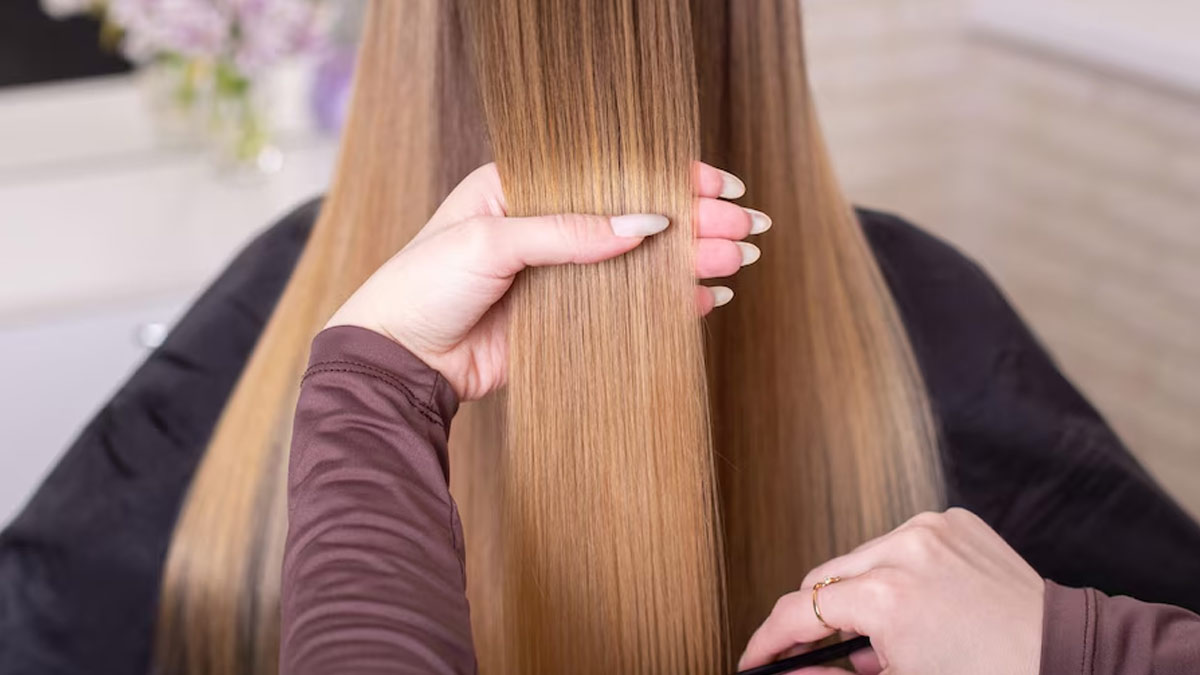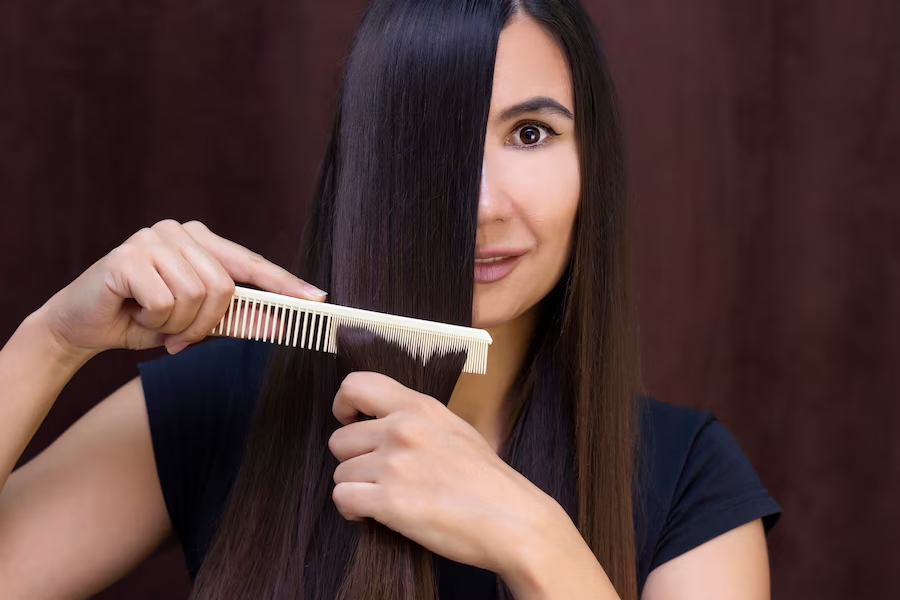
Most women opt for keratin hair treatment for their ability to straighten hair, reduce frizz, and create smoothness. This treatment works by infusing the hair with keratin, a protein naturally found in hair, skin, and nails, that provides structure and strength. However, it's important to reconsider this choice due to potential kidney damage. The recent findings underscore a concerning risk associated with certain hair-straightening products linked to Acute Kidney Injury (AKI). We spoke to our experts who explained the impact of keratin treatment on your kidney health.
Table of Content:-

“Keratin, a protein present in hair, skin, and nails, acts like building blocks, providing strength to these structures. To have straightened hair, people often use keratin treatments so that they can get a smooth and sleek appearance of the hair”, said Dr Anil Kumar BT, HOD, Sr Consultant Nephrologist and Chief Transplant Physician, Gleneagles BGS Hospital, Kengeri, Bengaluru.
Also Read: Forget Keratin, Natural Ways To Fix Damaged And Frizzy Hair
The Link To Kidney Damage

A recent study published by Bnaya in the American Journal of Kidney Diseases documented a series of 26 patients in Israel who experienced AKI after using hair-straightening products. This highlights a potentially overlooked cause of AKI.
According to a 2019 study, AKI is characterised by a sudden decline in kidney function, which may occur with or without a decrease in urine output. The severity of the injury can vary from mild to severe, occasionally necessitating renal replacement therapy.
Symptoms and Complications

“The typical symptoms observed upon presentation included nausea, vomiting, and abdominal pain, with scalp rash also commonly noted. In individuals who undergo repeated hair straightening treatments, the individuals may experience recurrent episodes of AKI”, said Dr Kumar.
Factors Contributing to Risk
Previously, it was believed that topical creams or solutions might not undergo systemic absorption. “However, research has shown that high concentrations of glycolic acid, low product pH, and compromised skin integrity increase the likelihood of glycolic acid absorption. Therefore, caution is warranted when assessing the safety of hair products”, highlighted Dr Kumar.
Glycolic Acid and Kidney Health
The use of these hair-straightening products containing glyoxylic acid is associated with a risk for acute kidney failure. This is because the glycolic acid is converted to oxalate, which deposits in the kidneys and causes kidney damage.
Formaldehyde and Kidney Health
“Formaldehyde, a known irritant and potential carcinogen, poses risks to kidney health, particularly when absorbed into the bloodstream in significant quantities. Individuals with pre-existing kidney conditions or sensitivity to chemical exposures may be especially vulnerable to the adverse effects of formaldehyde on kidney function”, highlighted Dr Milly Mathew, Senior Consultant, Nephrology, MGM Healthcare, Chennai.
The American Cancer Society cautions that formaldehyde is classified as a known carcinogen. This designation indicates its potential to either cause cancer or facilitate its development. Additionally, formaldehyde has the potential to induce other adverse health effects.
Also Read: Secret To Smooth And Shiny Hair: Here's How You Can Make Homemade Keratin Treatment
Implications for Kidney Function
The kidneys play a vital role in filtering toxins from the bloodstream, and exposure to harmful substances like formaldehyde can strain these organs. Understanding the potential impact of keratin treatments on kidney health is essential for individuals considering such cosmetic procedures.
Informed Decision-Making
Dr Mathew added, “Discussion of the risks and benefits of cosmetic procedures, including keratin treatments, is crucial for informed decision-making. This consideration extends to other cosmetic practices, such as skin whitening treatments and creams, enabling individuals to align their choices with their overall health goals.”
[Disclaimer: This article contains information provided by experts and is for informational purposes only. Hence, we advise you to consult your expert if you are dealing with any health issues to rule out the complications.]
Also watch this video
How we keep this article up to date:
We work with experts and keep a close eye on the latest in health and wellness. Whenever there is a new research or helpful information, we update our articles with accurate and useful advice.
Current Version